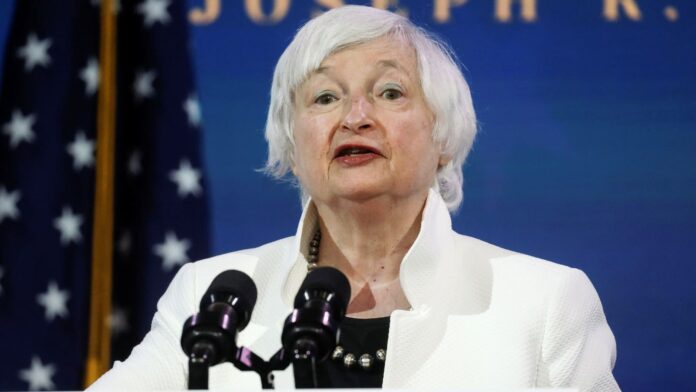The United States Secretary of the Treasury, Janet Yellen, has informed that the U.S., as a creditor nation, will participate in restructuring Sri Lanka’s debt.
The critical need for the full cooperation of all official creditors in debt negotiations and restructuring through timely participation and equal burden sharing have been outlined, President’s Media Division (PMD) announced.
The US Treasury, welcoming President Ranil Wickremesinghe’s proposal for a coordination platform for Sri Lanka’s official bilateral creditors, has urged engagement in this regard.
Sharing the common goal with Sri Lanka of expediting financing assurances, the U.S. has expressed readiness to join other Paris Club members in this process, in keeping with its principles, the PMD said further.
Further the U.S. Treasury has pledged to continue to engage with their other government agencies, as well as the World Bank and Asian Development Bank, to assist the people of Sri Lanka.
It is recalled that the U.S. has supported the people of Sri Lanka inter alia through the provision of school nutrition for children, food vouchers for pregnant women and new mothers, and fertilizer & cash transfers for small and medium scale farmers to increase food production.
n September 1, the IMF reached a staff-level agreement to support Sri Lanka’s economic policies with a 48- month arrangement under the Extended Fund Facility (EFF) of about $2.9 billion. Sri Lanka is going through its worst economic crisis since its independence in 1948 which was triggered by a severe paucity of foreign exchange reserves.
Commenting on the US decision, foreign minister Ali Sabry said Sri Lanka thanked the US for agreeing to support it in re-profiling its debts.
However, the IMF said financing assurances to restore debt sustainability from Sri Lanka’s official creditors and making a good faith effort to reach a collaborative agreement with private creditors are crucial before the IMF can provide financial support.
Private creditors or sovereign bondholders account for 48 per cent of Sri Lanka’s international debt amounting to $51 billion followed by the ADB with 13 per cent, China and Japan both 10 per cent each and the World Bank with 9 per cent.
Sri Lanka in mid-April defaulted on its debt for the first time in its history as the country struggles with its worst financial crisis in more than 70 years. It became the first Asian country in two decades to declare preemptive debt default
